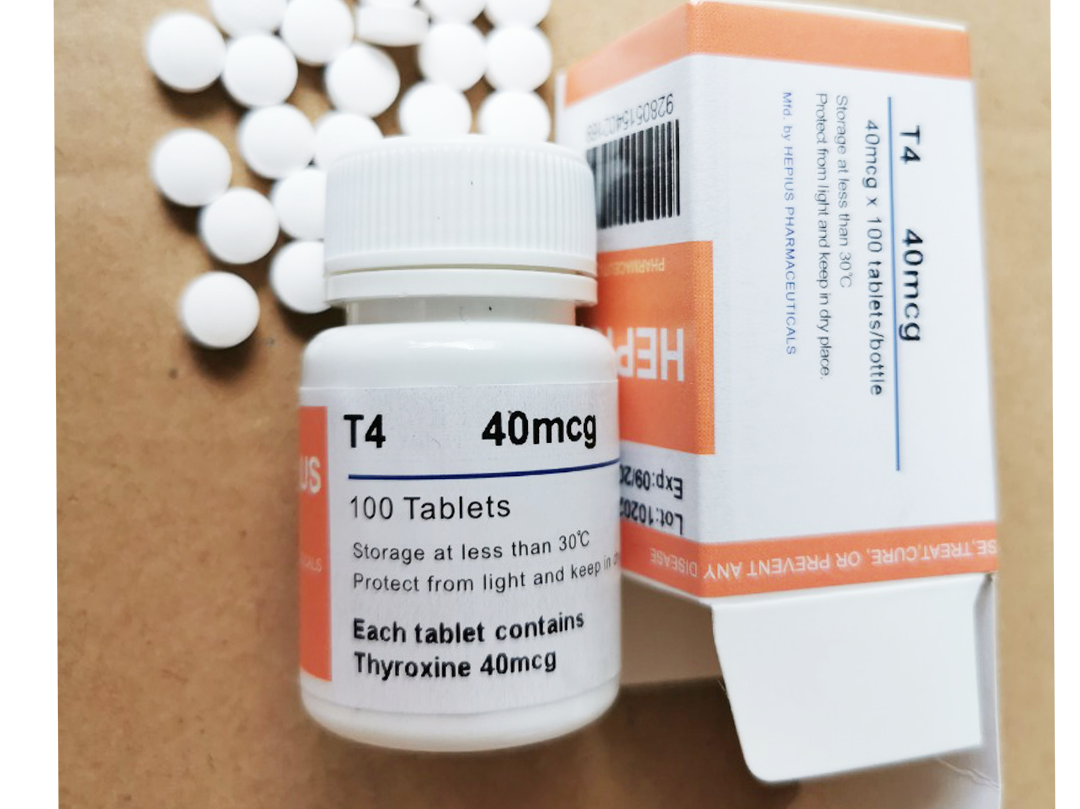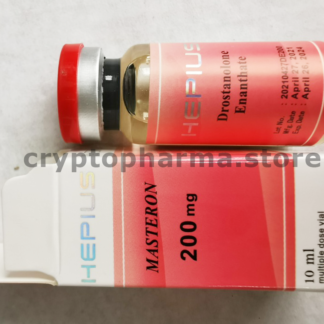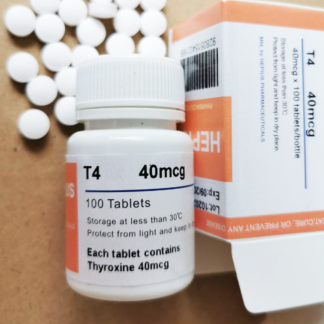Description
Levothyroxine – also known as T4 – is a naturally occurring hormone produced by the thyroid gland.
Levothyroxine is the thyroid hormone, which is produced directly by the thyroid gland, whereas the thyroid hormone liothyronine (T3) is produced in the body by enzymatic conversion of the thyroid hormone levothyroxine.
The task of thyroid hormones in the body consists in the regulation of burning fat, carbohydrates and protein. This means thyroid hormones are responsible for the amount of the metabolic turnover, which is burned in the resting state during a given period of time.
If, therefore, the thyroid hormone level is low, the basic turnover of fat, carbohydrate and protein burning is also low. If the mirror of the thyroid hormones rises, so does the combustion.
Since thyroid function is usually due to the thyroid gland producing too small amounts of thyroid hormone levothyroxine (T4), a thyroid hormone preparation with levothyroxine (T4) is almost always used.
The thyroid hormone liothyronine (T3) is used in the rarer cases, for example, when the conversion of the thyroid hormone levothyroxine (T4) into the thyroid hormone liothyronine (T3) is disturbed.
Bodybuilders occasionally use the thyroid gland hormone levothyroxine during the mass phase, to increase the metabolic turnover and burn more calories.
If you would eat mainly fat fast and junk food, you would not become fat.
The meaning of compensating the negative effects of false nutrition with the help of thyroid hormones is, however, more than questionable.
Furthermore, the protein metabolism is stimulated by thyroid hormones, which can lead to an increased protein synthesis with simultaneous high protein supply in combination with anabolic steroids.
Bodybuilders often take protein preparations and / or clenbuterol with the use of thyroid hormones to counteract the muscle breakdown. In order to provide absolute muscle control, male users also use Androge.
The use of levothyroxine (T4) often involves the addition of iodine. Since it is most effective to keep your thyroid hormone level at the natural upper limit in a diet, it is advisable to have its values determined beforehand by a physician.
Side effects:
Levothyroxine (T4), trembling, restlessness, dizziness, sweating, weight gain, hair loss, diarrhea, insomnia, nausea, increased heart rate, internal restlessness, loss of weight, down-regulation of the thyroid function (especially during prolonged use)
Application / dosage:
This allows the body to get used to the declining hormone level and the thyroid gland can react to the sinking exogenous supply of the thyroid hormone levothyroxine (T4) and slowly increase the self-production again.
In bodybuilding, athletes speak of dosages between 200 – 400 mcg / day when levothyroxine is used for diet support.
The dosage usually begins at 100 mcg / day, is increased by 25 or 50 mcg / day every 1 – 2 days until the maximum dose of administration is reached.
At the end of the course, the dose is slowly lowered. Every 2-3 days the dosage is reduced by 25 or 50mcg / day (to zero).
It is important, That the dosage is slowly increased when starting and decreased when ending the cure so the thyroid gland will be adjusted smoothly.
Levothyroxine intake usually lasts 4-6, maximum 8 weeks.
When taking tablets, care should be taken that no calcium-rich food (e.g., dairy products) is added 2 hours before and 2 hours after the dose.
If the side effects are too strong, only a reduction of the dose, up to the end of the intake, helps. In this case as well, the dosage must be slowly reduced (excreted), since other side effects may occur.
The dosage information given here is not intended as a dosage recommendation or medical advice. These are statements by bodybuilders who have used or used these active ingredients. The dosages should never be regarded as generally valid. If you are using the idea of using steroids or similar, ask a doctor or pharmacist.
Overdose:
Heart failure, coma – The side effects usually appear 6 – 11 hours after the application.
Synonyms:
T4, T-4, LT4, LT-4, levothyroxins, L-thyroxins, synthetic T4, synthetic T4, tetraiodothyronines
[post-link id=5969]









Reviews
There are no reviews yet.